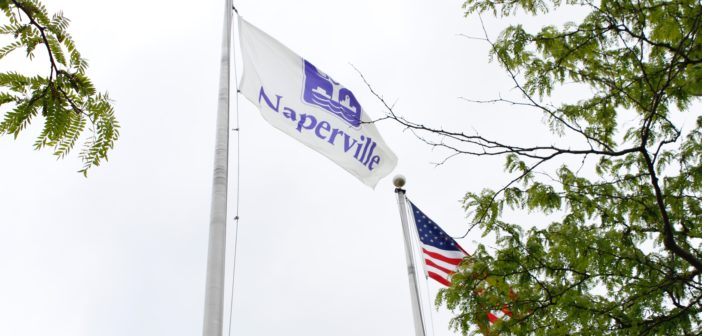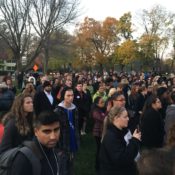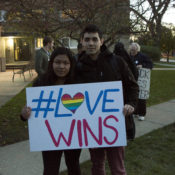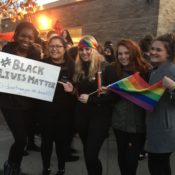Millennials get a bad rep, seen as a self-absorbed generation, obsessed with technology, who have absolutely no idea what a struggle is. Whether or not you believe these generalizations to be true, millennials actually hold just about as much voting power as the older generations.
Yes, Baby Boomers, it’s true. A 2016 analysis of the census by Pew Research showed that 69.2 million Millennials were eligible to vote, literally right behind the Baby Boomers with 69.7 million eligible.
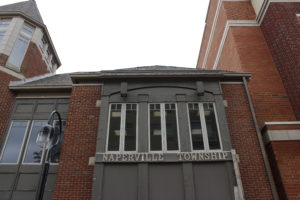 So, If you were born somewhere between 1982 and 2004, you are a part of the exclusive millennial club, according to researchers Neil Howe and William Strauss. While the word for this generation has such an unnecessarily negative connotation, millennials matter and they’re playing a huge roll in political elections nationally.
So, If you were born somewhere between 1982 and 2004, you are a part of the exclusive millennial club, according to researchers Neil Howe and William Strauss. While the word for this generation has such an unnecessarily negative connotation, millennials matter and they’re playing a huge roll in political elections nationally.
Naperville is home to North Central College, Naperville North High School, Naperville Central High School and Neuqua Valley High School, filled with students of and near voting-age. While there is a low turnout for municipal elections overall, an even smaller chunk of those voting and involved locally are from the millennial generation.
The Role of the 2016 Presidential Election
Coming out of a heated and historical presidential election and race in 2016, we have seen a lot. From small hands to email scandals, there is no denying that the controversies surrounding the election got everyone and their mother involved in the discussion.
Protests and marches have taken over the Chicago streets over the past several months on issues like immigration, women’s rights and the environment. The night of and after the election, protesters were already flooding the city to show their disappointment and resentment of the president-elect.
Audio PlayerNaperville voters did not leave themselves out of this discussion. On Nov. 11, 2016, the March in Solidarity took the streets through Naperville’s downtown and ended on the Jefferson Lawn at NCC, which allowed for people to peacefully express their concern, but also come together in hopes for change.
Several NCC organizations and clubs hosted the event, such as the NCC College Democrats, MOSAIC and the International Club. With over 150 people in attendance, this event proved that young voters definitely care about the big issues.
- March attendees gathered on Jefferson Lawn
- #LoveWins
- Photo from Chronicle archives
Councilman John Krummen explains what it was like speaking with people after the presidential election, and how the reactions moved towards action in local politics:
Audio PlayerNaperville city councilwoman and co-owner of Anderson’s Bookshops, Becky Anderson, was first elected in 2015 and is continuing to push for the issues she cares about. On Nov. 18, 2016, Anderson’s brought Senator Bernie Sanders to North Central College, a democratic candidate who raised the voices of the millennial generation.
“I think maybe there hasn’t been the encouragement by existing politicians and people in education and other places that have some influence over millennials. Getting engaged is so important,” said Anderson.
A report by the Center for Information and Research on Civic Learning and Engagement (CIRCLE) at Tufts University showed that Sanders got about 29 percent more votes from people under the age of 30 than Trump and Clinton combined.
Councilwoman Rebecca Boyd-Obarski believes that millennials really came alive and got involved in 2008 during the Obama campaign, with 53 percent of young people who voted. She explains how it compared to the 2016 election:
How Naperville Politics Really Work
In the 2017 city council elections, there were eight candidates running for four seats. The people of Naperville elected Judy Brodhead, John Krummen, Kevin Coyne and Benny White to those seats, making it an even split of four men and four women.
Councilwoman Judy Brodhead has been on the Naperville City Council since 2009. After a close and competitive race, she explains what the voting process is actually like:
“Turnout for local elections in Naperville tends to be very low, especially when we aren’t voting for Mayor. A Mayoral election brings more people out. Even though the Mayor doesn’t have a huge amount of power in comparison to council, the mayor can make appointments to the advisory commissions; the mayor certainly represents the city all over,” said Brodhead.
She shared an interesting fact about her campaign journey and information of how local politics in Naperville really work. She explains how your vote becomes public information:
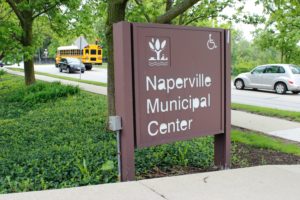
“Often it’s 13, 14, 15, 16 percent of the voters. So, it’s a fraction of the number of people who vote in a presidential election,” said Brodhead.
With the combination of both DuPage and Will counties, the total number of votes was 41,753.
The Naperville city council meets on the first and third Thursday of each month, following the agenda issues and then opening up to other questions and concerns from residents.
The Issues That Affect Millennials
If you live in Naperville, are here attending NCC or just passing through, you are affected by the laws that the mayor and city council have voted upon. From things like buying your coffee in the morning to the development of your favorite riverwalk, there are issues that directly affect you, maybe without even realizing it.
The Housing Crunch
According to an article by the Naperville Sun, rent for a one-bedroom apartment is a whopping $1,190 a month on average, making it the fourth priciest area to rent in the Chicago metro area. With the average college debt in Illinois upwards of $29,305 (as of 2015), expecting loan repayments after school is probably making the idea of renting after college in Naperville a little bit unappealing.
Councilwoman Brodhead explains the shock factor that a lot of millennials run into after college graduation when trying to stay in Naperville:
Sales Tax and Affordability
Housing isn’t the only thing that will continually tug at your wallet while living in the ‘Ville. Like any city, there is a list of taxes that you have to pay for various things, most of which won’t come as a shock.
Food and Beverage tax in Naperville is at 1.0 percent and is charged whenever you buy drinks (alcoholic or non-alcoholic), which can be eaten or drank on the premises. So, just keep in mind that your Saturday night out could end up costing you a little bit more than you may have thought, but not by much.
Buying your new pair of shoes will set you back an extra .50 percent for Retail Sales Tax on top of the State Tax and Regional Transportation Tax, rounding out to a total of 7.5 percent.
While you may not think about these taxes on a regular basis, they are most likely affecting you, and voting for in local elections is how you can voice your concern or appreciation over the tax rates.
Jobs
Recent college grads, almost college grads or anyone else looking for a job in a more modern field in Naperville may have a bit of a hard time. While it isn’t necessarily easy to snag a job right out of college, it would be helpful to offer more jobs in the area.
Councilman John Krummen believes that a big issue that millennials in Naperville should be paying attention to and hoping for are jobs. His past experience working at Caterpillar, and it’s recent announcement of it’s closing, made it a realization that the manufacturing jobs are heading out of the area.
But, he believes that jobs like healthcare and technology should really prosper in the area, offering more positions.
“Those are issues that I think we as a community, as a city council, need to address. Bring in more jobs that are suited for technology and more suited for the millennials,” said Krummen.
Councilwoman Anderson explains what exactly the city council actually controls, and how some of those everyday things we don’t pay attention to could be taken for granted:
So, if you thought that voting in municipal elections didn’t matter, these issues may make you want to reconsider getting involved.
Getting Involved Now
Kevin Oyakawa, president of College Democrats at North Central College, believes the big reason for why young people aren’t involved is the lack of of information taught about politics between elementary and high school.
“I believe it (the election) was April 4th and that’s entirely different from what we’re taught in schools. We’re taught ‘oh, it’s November, second Tuesday in November, you’ve got to get out to vote’ but, we’re never taught ‘oh, the municipal elections are at a different time’ so, I feel like that can account for a lot of it and also the fact that, again, we don’t really understand the importance of local elections and local elected offices,” said Oyakawa.
Councilman John Krummen believes that in order to be truly informed and involved, you have to look at politics from both sides and make sure you have the facts:
Audio PlayerNo matter what you were taught in school, there are several local organizations in Naperville that can act as a starting point to get you immersed into whatever interests you politically.
“You really do have to find that candidate or that issue that you care about and volunteer, go, call that person’s office, say “you know I see that you have to run again in two years, I’d like to be on your campaign. I want to walk neighborhoods with your flyers. I want to go to rallies,” said Obarski.
Attending a local political group meeting in Naperville is a great place to connect and share ideas, concerns and start actions for change. The Naperville Townships Republicans and the Naperville Township Democrats meet monthly and are open to anyone and everyone interested. The Naperville Township Republicans next monthly meeting is coming up on June 24th and The Naperville Township Democrats next meeting is coming up on June 29th.
For students on campus, the North Central College Democrats and North Central College Republicans hold meetings and events throughout the school year to increase student involvement.
For more information on voting and city council, check out the Naperville government website.
All photos, videos and audio clips by Emily Arias.

